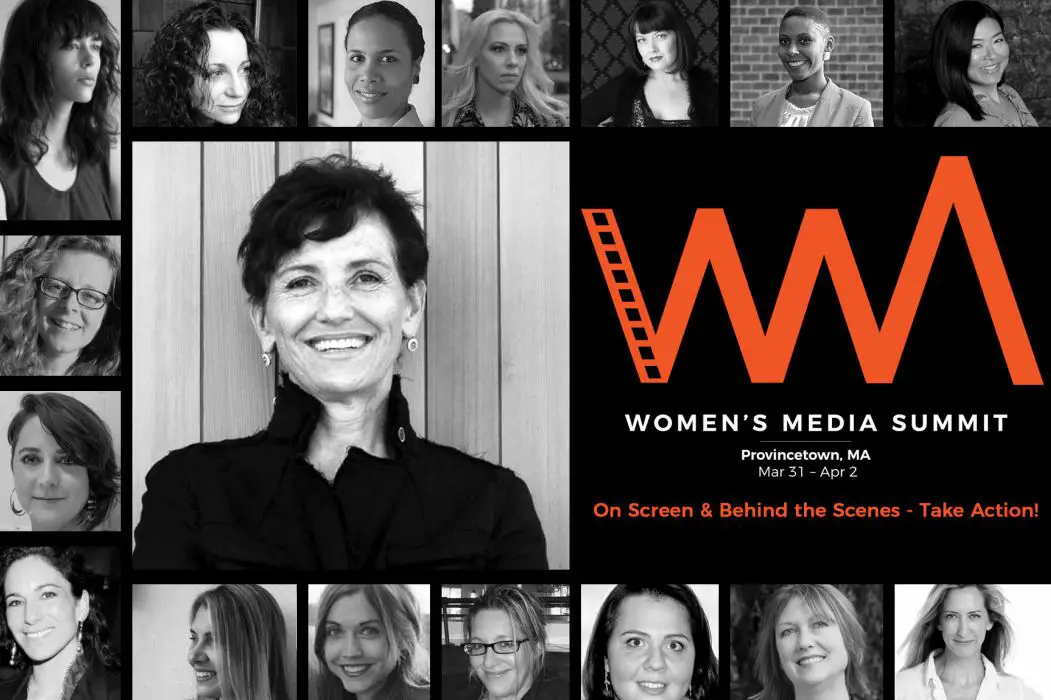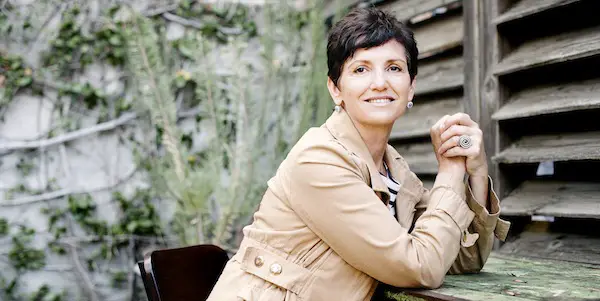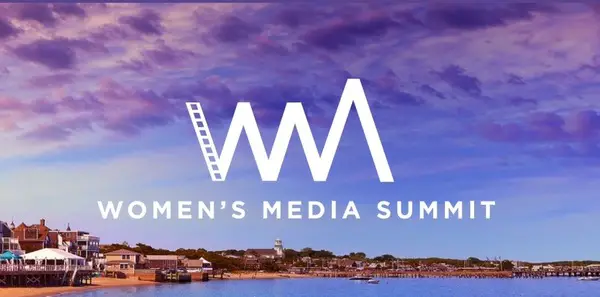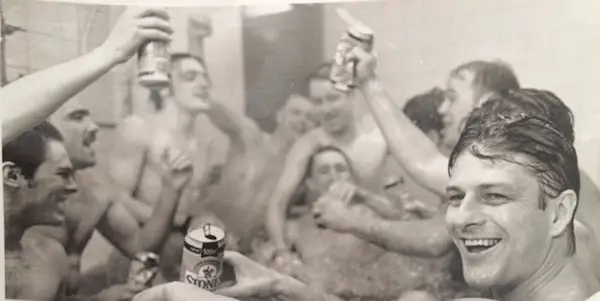“If We Build It, They Will Come:” Looking Toward This Month’s Women’s Media Summit With Filmmaker & Activist, Maria Giese

Sophia Cowley is a young writer, yogi, feminist and film…
Many of our readers may already know about the EEOC’s push to hold big Hollywood studios accountable for their discriminatory hiring practices. (Maria Giese recently wrote a detailed update of the EEOC investigation that is definitely worth checking out.)
In case you were out of the loop, in 2015, the Equal Employment Opportunity Commission began conducting interviews with women directors in Hollywood to assess the prevalence of gender prejudice in the industry.
It is no secret that Hollywood is still, in large part, a boys club. In 2016, women directed a meager 7% of top grossing films in the U.S. The issue is not a lack of female talent, but a systemic bias toward women in the industry, who subsequently get shut out of opportunities. Reportedly, the investigation has since wrapped. But while these studios may have reached a settlement, this fight is far from over.
Thankfully, powerful women around the globe are now taking a stand. At the end of this month, directors, producers, writers, costume designers, sound engineers and everyone in between will gather in Provincetown, MA for the 2017 Women’s Media Summit. The event is spearheaded by veteran film producer Christine Walker and Maria Giese, director and founder of Women Directors In Hollywood, and Dr. Caroline Heldman, primary researcher at the Geena Davis Institute For Women In The Media and professor at Occidental College.
Ms. Giese, who also contributes to Film Inquiry, played a pivotal role in pushing the ACLU to pressure the EEOC toward investigating hiring practices of all six studios. I had the good fortune of interviewing Ms. Giese, who told me about the incredible organizational efforts behind the Women’s Media Summit, and what to expect if you are able to attend.

From LA to MA
Sophia Cowley for Film Inquiry: Can you tell us a bit about what was happening in your life around the early stages of planning?
Maria Giese: When I met the Women’s Media Summit producer Christine Walker last year, I had just left LA after over 25 years. The EEOC investigation for women directors had just begun. I was basically blacklisted in my union, the DGA, and I had moved to rural Connecticut to write my book, “Troublemaker”, about my insurgency in Hollywood. After five years of non-stop activism in LA, I truly felt like an exile and I was feeling frustrated with idle hands. I knew that this issue had to be taken out of Hollywood in order to be solved, but I wasn’t sure how to do it.
And then you met the summit producer, Christine Walker?
Maria Giese: Christine was on Cape Cod running the Provincetown International Film Festival which every year draws many of the most brilliant filmmakers from around the world. We started talking and she had all kinds of dynamic ideas to continue the battle for gender equity in Hollywood from the East Coast. We talked about the need to keep this issue in the hands of those of us who were concerned and thought, what better way to create unity and keep the action going than to have a Summit? I had co-produced a Summit for women directors in the DGA in 2013, and it had been a critical step toward getting the ACLU on board.
Christine and I imagined a forum of equals in which we could explore a panoply of immediately actionable, enduring solutions to Hollywood sex discrimination with like-minded people. We didn’t know how we were going to get the money to fund the Women’s Media Summit, but Christine had this wonderful community and organizational base in Provincetown. It was like “If we build it, they will come!”
How did the funding come together on such short notice?
Maria Giese: The election happened. We were all shell-shocked. We needed something active to focus on. Christine reminded everyone we already had the perfect answer: The Women’s Media Summit. No one thought we had the time to pull it together, but Christine is a gifted veteran producer. If anyone could do it, she could. She brought in the feminist/activist Dr. Caroline Heldman, to co-chair with us and reached out to a few philanthropists for support.
It’s been an all-consuming effort of volunteers. It almost feels like a continuation of the Women’s March— we are all working as volunteers on a passion project simply for the sake of advancing women. Women and men from all over the country are working side by side with the local community on Cape Cod to make this happen.
Jeanne and Dianne [co-owners of the Sage Inn in Provincetown] were able to bring in more innkeepers, so we knew we’d have a beautiful venue and plenty of rooms for all 102 of our participants. That’s how these women in Provincetown became key instigators the event.
And it’s great for Provincetown because all these people are becoming familiar with and invested in this small community. We are all united in the belief that equal inclusion of women in our entertainment media will result in the collective betterment of our society large.
Provincetown: “The Original Artist’s Colony”
Sophia Cowley for Film Inquiry: So how did Provincetown become the setting for the forum?
Maria Giese: Last fall Christine had me come as the Keynote speaker at Women’s Week during that stressful month before the 2008 presidential election. The women in the audience were very interested in the idea of having a Women’s Media Summit. They wanted to hear more. Most of them were not industry people, but they recognized how important having more women controlling our narrative was relevant to them— to everyone.
The two women who own the Sage Inn where Women’s Week was being held— Jeanne and Diane— immediately stepped up: “What can we do?” they asked. “Here’s our inn— what else do you need?” This is the kind of proactive generosity that results in the creation of miracles. Ann McQuire, the brilliant Boston-based political strategist was on a panel with me and she also offered her full support.
Film Inquiry: What makes Provincetown special?
Maria Giese: Provincetown has been an extraordinary place throughout American history. It is a town that is famous for being first at many things. It was the first landing place of the pilgrims, and it’s where the Mayflower Compact was written.
[Provincetown] is the oldest art colony in the United States, and is still perhaps the most famous gathering place for artists of all disciplines.
The town is also the birthplace of modern American theatre and has always been a mecca for diversity. We think our summit has a lot to learn from what this community represents.
For all these reasons, it is no coincidence that Provincetown is the summit location. And it also happens to be my hometown. My grandfather who was friends with Tennessee Williams helped my grandmother start the first children’s theatre in town. Both of my parents have been deeply involved in this community. And 40 years ago my father co-founded the Provincetown Center for Coastal Studies that is now world renown in science and environmentalism.

The Summit
It became increasingly clear, as I interviewed Ms. Giese, that Provincetown was the perfect setting for this month’s summit. But the question lingering in my mind was: why is now such a critical moment for this Summit?
Michelle Kantor stepped in to answer my question. Ms. Kantor is the Founder and Executive Director of Cinefemme, a non-profit organization with a cutting-edge approach to gender parity, that empowers women-identified and nonbinary filmmakers to greenlight their projects, connect with industry VIPS, amplify our diverse creative voices, and lift each other up through our collective community. She responded with a poignant confidence:
The Women’s Media Summit comes at a crucial time because Hollywood is ripe for disruption, and women are uniting to overhaul an archaic and dysfunctional system. As part of the braintrust, I’m truly excited about proactively creating the future we want to see in our industry. We are ready to disrupt and reimagine how women creatives are treated, hired, and perceived. It’s time to chart an extraordinary course forward.
Ms. Kantor is one of a couple dozen diligent organizers of the Summit who have been working around the clock to be sure that the event runs flawlessly.
“White Paper”
The Women’s Media Summit will be broken down into three parts. On Day One, panelists will speak about issues surrounding the lack of gender parity in Hollywood. Day Two will bring together attendees into nine facilitated “working groups,” who will then discuss “actionable strategies” to kick our activism into high gear.
Finally, on Day Three, these groups will present their strategies, and will then put them to a vote. By the end of the weekend, the goal is to create a “white paper” document, which can be used to elicit real change in the industry.
Film Inquiry: Who is welcome to attend the summit?
Maria Giese: While the Women’s Media Summit is curated and largely based on invitations, there are seats open to the public and the community. We welcome everyone to get involved and to join us in whatever way they can.
Can you let us in on any of the highlights of this month’s summit?
Maria Giese: We are already near capacity in our highly-curated think tank of professional women and men, many of whom are at the top of their fields. Our Women’s Media Summit will reflect the very equality we are trying to achieve. Entertainment industry participants are not the majority. We have even greater participation of leaders from other sectors of society including law, government, news media, business, tech, non-profit, arts, and others.
We are creating an environment for creative, dynamic, out-of-the-box thinking in ten brainstorming break-out groups that will consider myriad solutions including legislature, industry, and grassroots.
This think tank will be informed by panels of experts who will lay a foundation for the entire assembly. ACLU attorney Gillian Thomas and Milstein-Cohen partner Kalpana Kotagal will provide a newly-created timeline and overview of the battle for gender equality in our entertainment media for the whole assembly. Both of these women have been central voices on this issue for years.
Three panels composed of Dr. Kathleen A. Tarr, PhD (Stanford), Dr. David Adler, PhD (Alturas), Jody Hassett-Sanchez (ABC, CNN), Maria Agui Carter (NALIP/producer/Emerson), Dr. Caroline Heldman, PhD (Occidental/GDIGM), Cristina Escobar (The Representation Project) and Robin Wright (Kirwan Institute on the Study of Race & Gender) and myself will identify the problem and lay the groundwork for the break-out think tank sessions to follow.
Facilitators will direct the group discussions and scribes will record them. Afterwards, we will organize the notes into concrete proposals that will be voted on by the whole assembly in order of priority. We will then form committees to forge ahead in pursuit of the resolutions after the Women’s Media Summit is over. Finally, we will produce a “White Paper” based on the processes and results of the forum to share with the rest of the world.
Any other events taking place during the Summit?
Maria Giese: Some talks and screenings will also be part of the Women’s Media Summit and are also open to the public. Dr. David Adler, a Constitutional law expert from the Alturas Institute will give a talk on Reed v. Reed, the first time the Supreme Court ruled that the Equal Protection Clause of the 14th Amendment prohibited differential treatment based on sex.
Nina Menkes, one of America’s greatest experimental feature film directors and a professor at Cal Arts will give a talk on depictions of women in cinema. Anita Hill’s law partner Kalpana Kotagal will introduce the Academy Award-winning documentary “Anita” directed by Frida Mock. And we hope to show the new release of Julie Dash’s masterpiece “Daughters of the Dust” to be introduced by Dash’s producer Rachel Watanabe-Batton.

A Conflict Of Civil Rights
The Women’s Media Summit creators understand that female representation in Hollywood is, above all, a civil rights issue. It is the right of every woman, every creator, and every American to be seen, heard and valued by our society.
But there is a tremendous amount of work to be done to ensure the equal and just hiring of women and non-binary creatives in the film industry.
Film Inquiry: How has your involvement in the origins of the EEOC investigation influenced your vision for the Women’s Media Summit? How will the summit address the legal implications of fair filmmaking?
Maria Giese: For me the Women’s Media Summit is not a culmination of the work I’ve been doing, but an expansion of the scope. We need an organization outside of the industry that can encompass all women creative—even globally. Our world’s failure to include women’s voices in our storytelling is a civil rights problem. If women are not contributing equally to our cultural narrative, we are not just being prevented from controlling our own messages, we are sidelined in the very voice of our civilization.
Hollywood thinks that America’s entertainment media belongs to it—to a bunch of industry players, but I see it differently. I believe the entertainment media that forms such a dominant part of our nation’s storytelling belongs to all Americans. I know Hollywood wants to keep the people and our government out of this discussion, but that is not their right. That’s why it is so important that we get this problem into Washington DC, into our court systems, and into the mainstream news media—so we can all be a part of the solution.
It’s a fact that anyone who seeks work in Hollywood naturally faces a basic conflict of interest in attacking the industry to shift the status quo. You can’t attack those you hope will hire you, after all. And we can see that “collegial” insider solutions have failed decade after decade to remedy this problem. It’s time to change the strategy. It’s time to open it up.
What are some of the key questions that you hope will be discussed, brainstormed and potentially answered at this month’s summit?
Maria Giese: Can reform to Equal Employment Opportunity law result in greater effectiveness in reducing industry-wide discrimination against women directors?
Is the FCC being underutilized in terms of insuring that American entertainment media content represents women and the female perspective equally?
Can Affirmative Action programs still be utilized to increase the employment of American women storytellers?
Can the 5th Amendment, the 14th Amendment, and the Equal Protection Clause be more effective in supporting Title VII of the 1964 Civil Rights Act?
Is free speech compromised if women are sidelined from participation in American storytelling through systemic bias?
Could exclusion from one’s chosen profession through discrimination and systemic bias be interpreted as a denial of the pursuit of happiness guaranteed in the Declaration of Independence?
Is ratification of the Equal Rights Amendment essential to the solution?
Do the diversity policies in the DGA effectively help keep women directors shut out? And are unions and agencies equally culpable in violating Title VII where women are concerned.
What You Can Do To Help
We asked Ms. Giese how someone who was unable to attend the Women’s Media summit itself could get involved. Her response:
The purpose of the Women’s Media Summit is to seek solutions to this issue, and we welcome suggestions from anyone and everyone. Truly, our overarching goal is to bring people everywhere together in a united effort to gain equal participation of women’s voices and perspectives in our world’s storytelling. If anyone has suggestions for solutions, please write to me personally and I will gratefully include them in this ongoing conversation.
The Summit’s organizing team has been working around the clock to make this event happen. Additionally, this event is made possible by the generous support of its donors and participants. For more information on the Women’s Media Summit itself and how to get involved, please visit Womensmediasummit.org.
The Women’s Media Summit will take place from March 31st – April 2nd, 2017, in Provincetown, Massachusetts.
If you have a suggestion or solution in regards to the current state of gender discrimination in Hollywood, feel free to contact Ms. Giese at [email protected].
Does the Women’s Media Summit sound like something you would be interested in? Let us know what key issues you hope to see addressed in the comments below!
Does content like this matter to you?
Become a Member and support film journalism. Unlock access to all of Film Inquiry`s great articles. Join a community of like-minded readers who are passionate about cinema - get access to our private members Network, give back to independent filmmakers, and more.
Sophia Cowley is a young writer, yogi, feminist and film enthusiast from NY. Her idols include Miranda July, David Lynch and Abraham Lincoln. She runs the blog www. isthisthereellife.wordpress.com.













